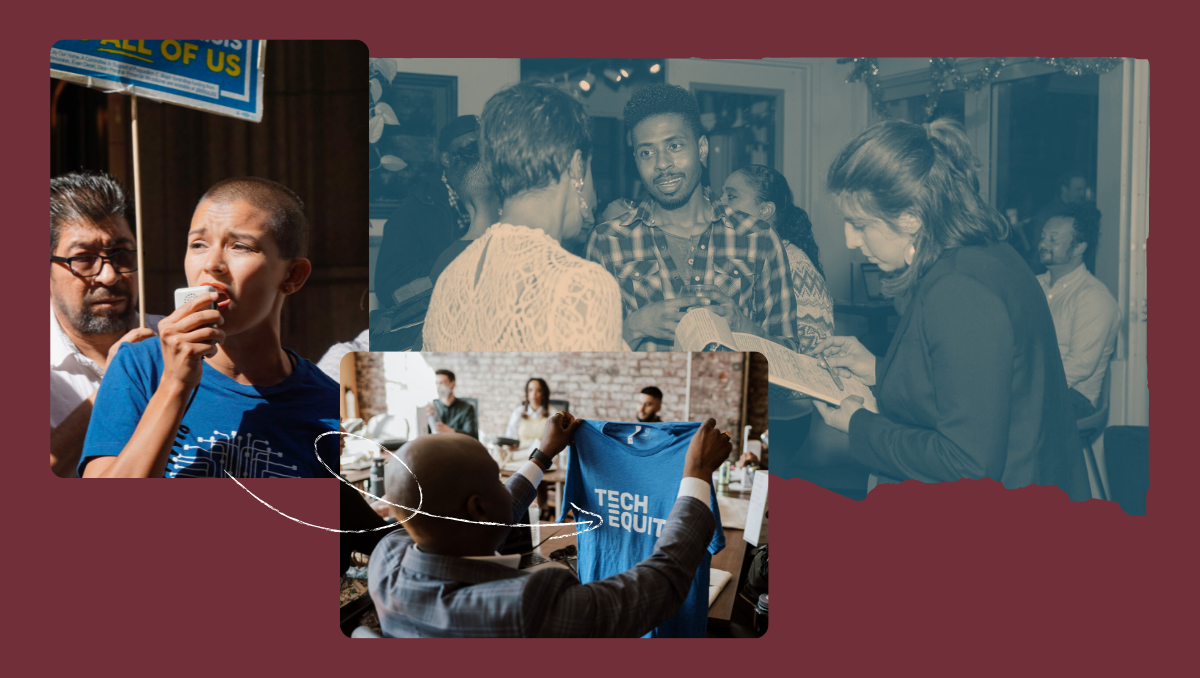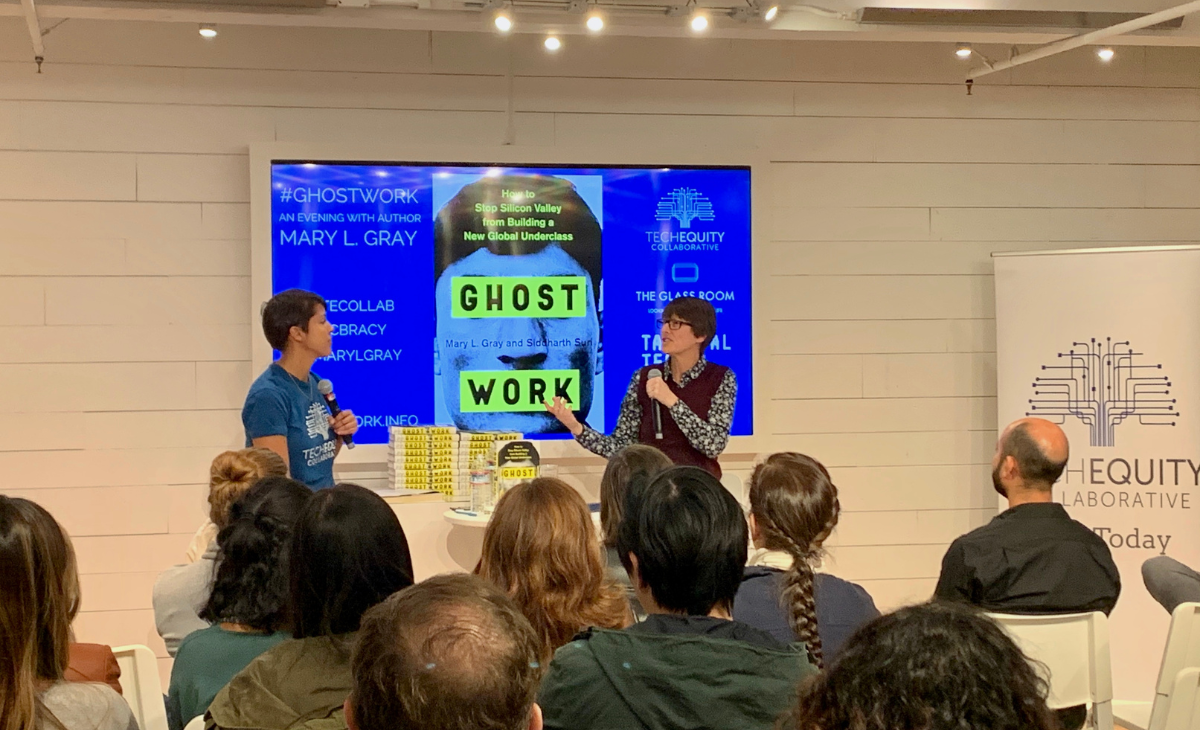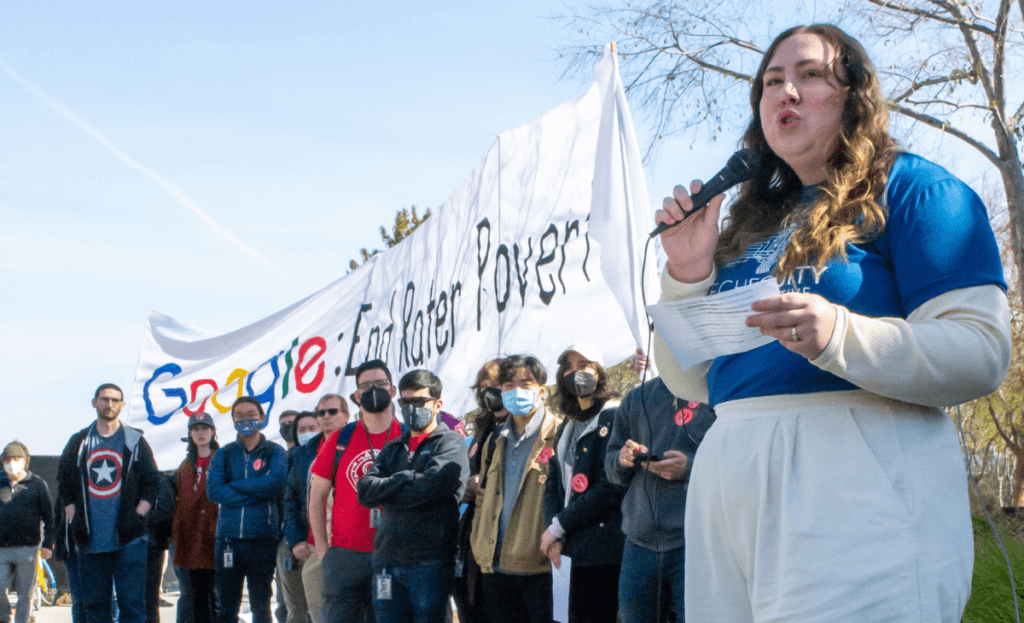The TechEquity story

TechEquity was founded in 2016 to answer a simple but ambitious question: what would it take for the growth of the tech industry to benefit everyone?
Tackling that question led us down many paths—some that became obvious very quickly, like the need to address the housing affordability crisis in and around Silicon Valley, and others that emerged as our work progressed, like raising awareness about the hidden inequities within the supply chain of tech’s labor force. In that time, we proudly took on campaigns that address the roots of economic inequality: building and winning historic and first-in-the-nation legislation, developing civic tech tools to empower our communities, and offering comprehensive and practical recommendations to change the tech industry for the better.

We started with tech workers at our core. In late 2016, galvanized by election results in America and the UK, tech workers became newly conscious about their political influence and the responsibility they had for their industry’s behavior. We leveraged that energy to focus their attention on issues closer to home—the impact that tech companies were having on the communities where they were based, and the role tech workers could play in ensuring tech’s presence in these communities was creating opportunity rather than inequality. That early work had great success: we mobilized over 7,000 tech workers and added their voices to broader campaigns to address economic inequities in tech’s backyard. That resulted in the passage of landmark legislation that we co-sponsored—the Tenant Protection Act of 2019—which was the single biggest expansion of renter protections in American history.
As Covid lockdowns forced a diffusion of tech workers away from the Bay Area and diverted attention to other more critical needs, we took the time to reflect on our purpose and refocus our attention. This caused us to grapple with economic equity issues that tech was perpetuating not just through their physical presence in our communities, but through their internal practices and the products and services they were releasing into the world.
That work resulted in the development of initiatives to tackle specific economic equity issues we learned about through our early work.

To understand the influence of tech on the housing system we launched the Tech, Bias, and Housing Initiative. To uncover workplace disparities in tech, we released first-of-its-kind research into the two-tiered employment system in the tech industry: the Contract Worker Disparity Project. In 2023, we kicked off our Housing Data Initiative to shine a light on the dynamics of the rental housing market and equip housing policymakers and advocates with the data and tools needed to ensure everyone has a safe, stable place to call home.
We ground each initiative in thorough research, providing a foundation for public policy and corporate practice recommendations to put those findings into action. As a result, we led the passage of the strongest pay transparency law in the country; we supported multiple pieces of legislation to end discrimination and racial harassment in the industry including the Silenced No More Act and the End to Caste Discrimination in California Act; and we partnered through coalitions and campaigns on a variety of legislation focused on worker’s rights, housing, racial and economic justice.
We know that any law is only as good as its implementation, so we also examine existing economic justice policies and explore how we can strengthen their impact. We discovered that the Tenant Protection Act of 2019 is only effective when renters know their rights and how to defend them. With a team of civic tech volunteers and in partnership with ACCE Institute, we launched the Tenant Protections Calculator, which has helped tens of thousands of Californians enforce their rights.
We also launched tools that provide concrete, comprehensive, and actionable recommendations for companies to make their products and practices more equitable: the Responsible Contracting Standard and the Proptech Ethical Practice Standard. As we campaigned for corporate adoption of these standards, we found companies agreed in principle but ultimately were unwilling to make changes to incorporate the recommendations. We’ve reconsidered what it takes to change corporate behavior and adjusted our strategy to set and enforce industry-wide standards.
As we look forward, this strategic plan leverages the lessons we have learned from our past work, the relationships we have developed that span a multitude of constituencies and interests, and the credibility we have amassed as an organization that can effectively advance a structural change agenda.
The role of tech in the world has never been more consequential. We are facing a global inflection point where societies will decide whether the technologies of the future will enable human flourishing or empower exploitation and division. We know that to build the future we want, organizations like ours need to foster bold and innovative thinking, adopt a strong orientation towards partnership and consensus-building, and pursue a dogged commitment to achieving structural change—and following through on its implementation.
Our history demonstrates that we embody all of those things, and we are excited about the role TechEquity will play in creating a future for tech that is more equitable than its past.

